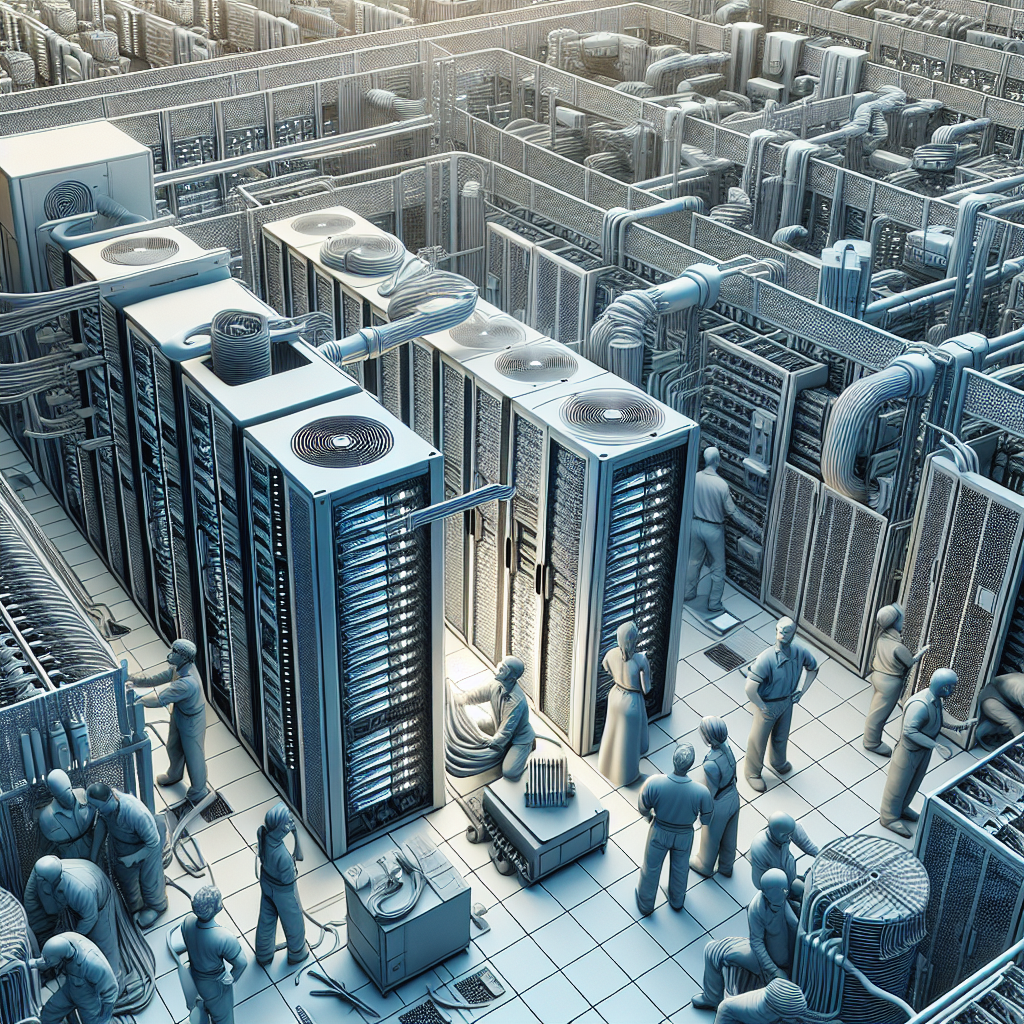Your cart is currently empty!
Common HVAC Challenges in Data Centers and How to Overcome Them

Data centers are essential for housing and managing the vast amounts of digital information that are generated and accessed daily. These facilities rely on complex systems to maintain optimal temperature and humidity levels to ensure that servers and other equipment operate efficiently and without interruption. However, there are common HVAC challenges that data center operators face that can impact the performance and reliability of their systems. In this article, we will discuss these challenges and provide solutions for overcoming them.
One of the most common HVAC challenges in data centers is inadequate cooling capacity. As data centers continue to grow in size and complexity, the demand for cooling systems that can effectively regulate temperature and remove heat from equipment also increases. If the cooling system is not properly sized or maintained, it can lead to overheating and potential equipment failure. To overcome this challenge, data center operators should work with HVAC professionals to properly assess the cooling needs of their facility and implement a cooling system that can efficiently handle the heat load.
Another common challenge is air distribution inefficiencies. In data centers, it is crucial to ensure that cool air is distributed evenly throughout the facility to prevent hot spots and maintain consistent temperature levels. Poor air distribution can result in equipment overheating and reduced system performance. To address this issue, data center operators can utilize tools such as computational fluid dynamics (CFD) modeling to optimize the layout of cooling equipment and airflow patterns within the facility. Regular maintenance and cleaning of air vents and ducts can also help improve air distribution and prevent obstructions that can impede airflow.
Humidity control is another important aspect of HVAC management in data centers. High humidity levels can lead to condensation on equipment and corrosion, while low humidity levels can cause static electricity buildup and potential damage to sensitive components. Data center operators should invest in dehumidification systems that can maintain the ideal humidity levels for their equipment. Monitoring and controlling humidity levels through the use of sensors and automated systems can help prevent issues related to moisture and static electricity.
Lastly, power outages and electrical failures can pose a significant challenge for data center operators. HVAC systems rely on electricity to function, and a loss of power can result in temperature fluctuations and potential equipment damage. To overcome this challenge, data center operators should invest in backup power systems, such as uninterruptible power supplies (UPS) and generators, to ensure continuous operation of their HVAC systems during power outages. Regular testing and maintenance of backup power systems are essential to ensure they are ready to activate when needed.
In conclusion, data center operators face various HVAC challenges that can impact the performance and reliability of their systems. By addressing issues related to cooling capacity, air distribution, humidity control, and power outages, operators can ensure that their data centers operate efficiently and effectively. Working with HVAC professionals and implementing proactive maintenance strategies can help overcome these challenges and ensure the optimal operation of data center HVAC systems.

Leave a Reply